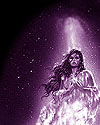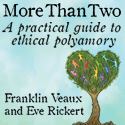 |
 |
 |
 |

Follow The InnKeeper on:
Skeptical & Critical Thinking Reading List
A list of the best critical thinking and skeptical books. These books explain how the brain works, why we think the way we do, how our own brains can fool us, how other people can fool us using the knowledge of how our brains work, and many offer tools to combat being fooled. These books will change how you view yourself, and other people. These books are a necessity for getting through life with a minimum of delusion and being taken advantage of by other people.
Skeptical, Science, & Atheist Books at Listal
And for those without flash enabled, a simple list:
| The Demon-Haunted World - by Carl Sagan | |

|
Carl Sagan muses on the current state of scientific thought, which offers him marvelous opportunities to entertain us with his own childhood experiences, the newspaper morgues, UFO stories, and the assorted flotsam and jetsam of pseudoscience. Along the way he debunks alien abduction, faith-healing, and channeling; refutes the arguments that science destroys spirituality, and provides a "baloney detection kit" for thinking through political, social, religious, and other issues. |
| Flim-Flam! - by James Randi | |

|
In this book, Randi explores and exposes what he believes to be the outrageous deception that has been promoted widely in the media. Unafraid to call researchers to account for their failures and impostures, Randi tells us that we have been badly served by scientists who have failed to follow the procedures required by their training and traditions. Here, he shows us how what he views as sloppy research has been followed by rationalisations of evident failures, and we see these errors and misrepresentations clearly pointed out. Mr. Randi provides us with a compelling and convincing document that will certainly startle and enlighten all who read it. |
| How We Believe - by Michael Shermer | |

|
One hundred years ago social scientists predicted that belief in God would decrease by the year 2000. "In fact ... the opposite is has occurred," Shermer writes in his introduction. "Never in history have so many, and such a high percentage of the population, believed in God. Not only is God not dead as Nietzche proclaimed, but he has never been more alive." Why do so many believe in the existence of something so inexplicable? That's exactly what Shermer answers in this comprehensive, intelligent, and highly readable discussion about the nature of faith. "People believe in God because the evidence of their senses tell them so," claims Shermer, who is the publisher of Skeptics magazine. Having been a believer and a student of the history of science, Shermer (now an agnostic) is more interested in knowing why and how people believe in God rather than trying to prove who's right or wrong. As a result, this book is not only even-handed and thorough, it is also destined to become a timeless contribution to spirituality as well as science. --Gail Hudson |
| How To Think About Weird Things - by Theodore Schick | |

|
This brief, affordable text helps students to think critically, using examples from the weird claims and beliefs that abound in our culture to demonstrate the sound evaluation of any claim. It explains step-by-step how to sort through reasons, evaluate evidence, and tell when a claim (no matter how strange) is likely to be true. The emphasis is neither on debunking nor on advocating specific assertions, but on explaining principles of critical thinking that enable readers to evaluate claims for themselves. The authors focus on types of logical arguments and proofs, making How to Think about Weird Things a versatile supplement for logic, critical thinking, philosophy of science, or any other science appreciation courses. |
| How To Think Straight - by Antony Flew | |

|
Celebrated philosopher Antony Flew entertainingly instructs on the many and varied faults that occur in argument, the power of reason, how to challenge assertions and find evidence, and how not to be persuaded by half-truths. Lucid, terse, and sensible, this enlightening second edition helps readers gain the skills necessary to argue and reason effectively. |
| How We Know What Isn't So - by Thomas Gilovich | |

|
Gilovich illustrates his points with vivid examples and supports them with the latest research findings in a wise and readable guide to the fallacy of the obvious in everyday life. |
| Mistakes Were Made (but not by me) - by Carol Tavris & Elliot Aronson | |

|
Why do people dodge responsibility when things fall apart? Why the parade of public figures unable to own up when they screw up? Why the endless marital quarrels over who is right? Why can we see hypocrisy in others but not in ourselves? Are we all liars? Or do we really believe the stories we tell? Renowned social psychologists Carol Tavris and Elliot Aronson take a compelling look into how the brain is wired for self-justification. When we make mistakes, we must calm the cognitive dissonance that jars our feelings of self-worth. And so we create fictions that absolve us of responsibility, restoring our belief that we are smart, moral, and right—a belief that often keeps us on a course that is dumb, immoral, and wrong. Backed by years of research and delivered in lively, energetic prose, Mistakes Were Made (But Not by Me) offers a fascinating explanation of self-deception—how it works, the harm it can cause, and how we can overcome it. |
| The Science of Good & Evil - by Michael Shermer | |

|
A century and a half after Darwin first proposed an 'evolutionary ethics,' science has begun to tackle the roots of morality. Just as evolutionary biologists study why we are hungry (to motivate us to eat) or why sex is enjoyable (to motivate us to procreate), they are now searching for the roots of humannature. In The Science of Good and Evil, psychologist and science historian Michael Shermer explores how humans evolved from social primates to moral primates, how and why morality motivates the human animal, and how the foundation of moral principles can be built upon empirical evidence. Along the way he explains the im-plications of statistics for fate and free will; fuzzy logic for the existence of pure good and pure evil; and ecology for the development of early moral sentiments among the first humans. As he closes the divide between science and morality, Shermer draws on stories from the Yanamam, infamously known as the 'fierce people' of the tropical rain forest, to the Aum Shinrikyo cult in Japan, to John Hinckley's insanity defense. The Science of Good and Evil is ultimately a profound look at the moral animal, belief, and the scientific pursuit of truth. |
| The Skeptic's Dictionary - by Robert Todd Carroll | |

|
Featuring close to 400 definitions, arguments, and essays on topics ranging from acupuncture to zombies, The Skeptic’s Dictionary is a lively, commonsense trove of detailed information on all things supernatural, occult, paranormal, and pseudoscientific. It covers such categories as alternative medicine; cryptozoology; extraterrestrials and UFOs; frauds and hoaxes; junk science; logic and perception; New Age energy; and the psychic. For the open-minded seeker, the soft or hardened skeptic, and the believing doubter, this book offers a remarkable range of information that puts to the test the best arguments of true believers. |
| Skeptoid: Critical Analysis of Pop Phenomena - by Brian Dunning | |

|
As its name suggests, Skeptoid is a collection of skeptical factoids - short pro-science essays debunking a broad variety of phenomena in pop culture with pseudoscientific or paranormal foundations. The foreword is by James "The Amazing" Randi, probably the world's best known debunker of psychics and paranormal frauds. Skeptoid's chapters are adapted from the first 50 episodes of the popular critical thinking podcast of the same name. Just about every popular pseudoscience is represented here: Everything from paranormal phenomena such as haunted houses, Bigfoot, and ghost lights to quack health trends like organic food, chiropractic, and wheatgrass juice. |
| Skeptoid 2: More Critical Analysis of Pop Phenomena - by Brian Dunning | |

|
As its name suggests, Skeptoid II is a collection of skeptical factoids - short pro-science essays debunking a broad variety of phenomena in pop culture with pseudoscientific or paranormal foundations. The foreword is by Michael Shermer, one of the world's most outspoken promoters of critical thinking. Skeptoid's chapters are adapted from 50 episodes of the popular critical thinking podcast of the same name. Just about every popular pseudoscience is represented here: Everything from paranormal phenomena such as crop circles, Nostradamus and ghost hunting to quack health trends like bioidentical hormone therapy, electrosensitivity, and the alleged mercury-autism link. |
| Skeptoid 3: Pirates, Pyraminds, and Papyrus - by Brian Dunning | |

|
We live in a modern Dark Age. Faith in pseudoscience is rampant, and belief in the supernatural permeates society at every level. Critical thinking is key to understanding what is truly useful, and what merely distracts from progress and development. This book gives you the tools to sort the solid from the silly, and answer such questions as: Can frogs and fish really fall out of the sky? Is a vast pirate treasure buried in an elaborately engineered Money Pit on an island in Nova Scotia? Did an angel save the British Expeditionary Force from the Germans in WWI? Do the world's elite secretly govern from Bohemian Grove? Is the world's largest ancient pyramid located in Bosnia? Does the Min Min Light actually chase travelers through Australia's outback? Author Brian Dunning hosts the Skeptoid podcast at http://skeptoid.com. Is this book, he casts his skeptical eye on fifty paranormal, cultural, and supernatural beliefs that are at best foolish, and at worst, deadly. |
| Why People Believe Weird Things - by Michael Shermer | |

|
In this age of supposed scientific enlightenment, many people still believe in mind reading, past-life regression theory, New Age hokum, and alien abduction. A no-holds-barred assault on popular superstitions and prejudices, with more than 80,000 copies in print, Why People Believe Weird Things debunks these nonsensical claims and explores the very human reasons people find otherworldly phenomena, conspiracy theories, and cults so appealing. In an entirely new chapter, "Why Smart People Believe in Weird Things," Michael Shermer takes on science luminaries like physicist Frank Tippler and others, who hide their spiritual beliefs behind the trappings of science.
Shermer, science historian and true crusader, also reveals the more dangerous side of such illogical thinking, including Holocaust denial, the recovered-memory movement, the satanic ritual abuse scare, and other modern crazes. Why People Believe Strange Things is an eye-opening resource for the most gullible among us and those who want to protect them. |
The Inn Between © 2002

























